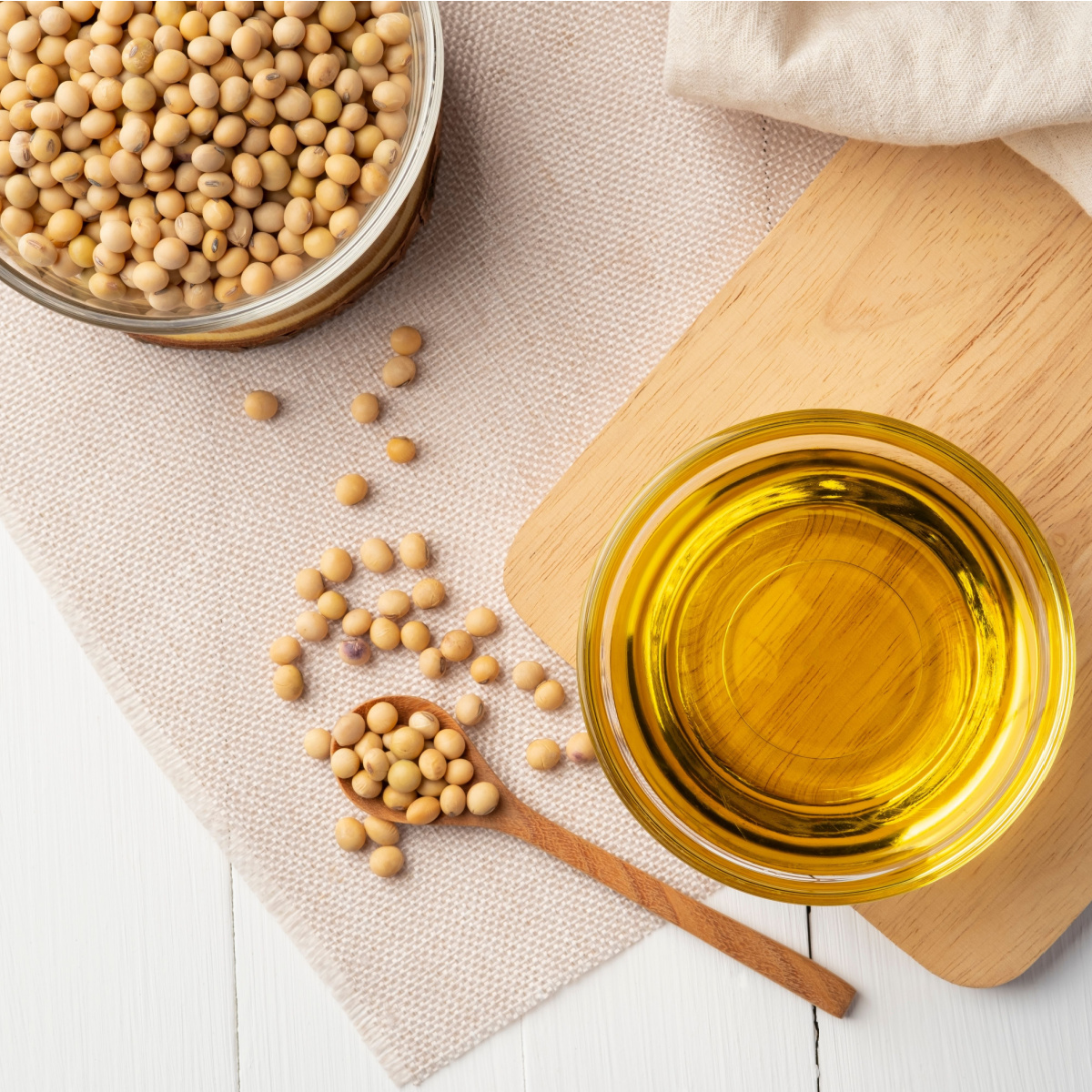Cooking oils play a crucial role in our culinary endeavors, adding flavor, texture, and nutritional value to our dishes. However, it’s essential to be mindful of the type of oil we use, as different oils have varying effects on health. While some oils, like olive oil and avocado oil, are rich in heart-healthy monounsaturated fats, others can have negative implications on our health. Consuming unhealthier oils in excess has been associated with an increased risk of cardiovascular diseases and many other health risks.
We spoke with Krutika Nanavati, a registered dietitian and nutritionist, to learn about two oils you should stay away from, especially when it comes to your heart health. Nanavati revealed that hydrogenated vegetable oils and soybean oil are the ones to minimize.


1. Hydrogenated Vegetable Oils
Hydrogenated vegetable oils, often used in processed foods to enhance shelf life and texture, can have detrimental effects on health, particularly heart health. The hydrogenation process involves adding hydrogen to liquid vegetable oils, transforming them into semi-solid or solid fats.
Nanavati elaborates further and says, "Hydrogenated vegetable oils are produced by adding hydrogen to liquid vegetable oils to turn them into solid fats. Commonly found in processed and packaged foods, these oils are often used for frying and baking. One of the main issues with hydrogenated oils is their high content of trans fats. Trans fats are known to increase the risk of heart disease, stroke, and type 2 diabetes. These fats can elevate harmful cholesterol levels (LDL) and reduce beneficial cholesterol levels (HDL), resulting in blocked arteries and ultimately leading to heart disease."

2. Soybean Oil
Soybean oil, commonly used in cooking and food processing, has a high polyunsaturated fat content, primarily consisting of omega-6 fatty acids. While these fatty acids are essential for the body, an excessive intake of omega-6 compared to omega-3 fatty acids can lead to an imbalance and potentially contribute to inflammation, impacting heart health.
"Soybean oil is a widely used vegetable oil extracted from soybean seeds for cooking and food processing. Soybean oil is high in omega-6 fatty acids, which in excess can promote inflammation in the body. This inflammation has been linked to chronic conditions such as heart disease, cancer, and autoimmune diseases," Nanavati notes.
Numerous alternatives are available for cooking oil, allowing you to make choices that promote both your overall health and heart well-being. "When selecting cooking oils, consider fatty acid composition and smoke point. Olive, avocado, and coconut oils are recommended for healthy cooking due to their high smoke point and balanced fatty acids. Olive oil contains monounsaturated fats and antioxidants, reducing the risk of heart disease."


























